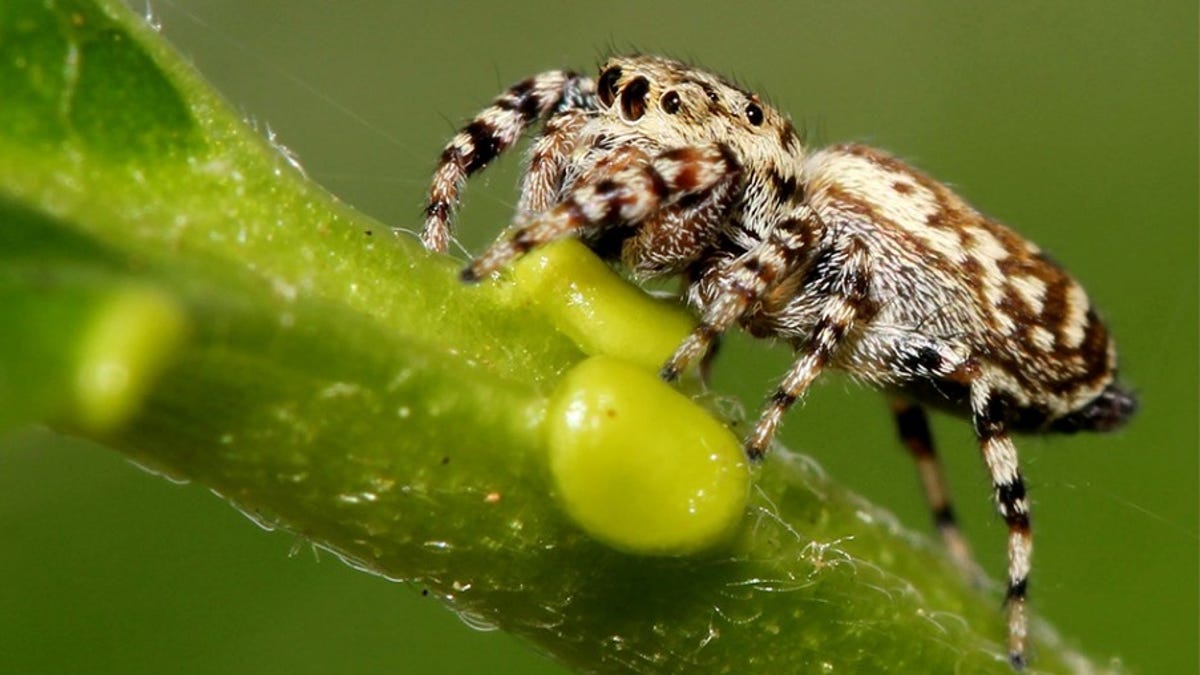Spiders also like to eat their veggies
The primary food source of spiders is usually the liquefied innards of insects, but a new study finds they like to nosh on vegetables, too.
If someone asks you what spiders eat, you'd probably say insects, or toads, or birds, or fish, or mice (click those links at your own discretion). You probably wouldn't say plants, but according to a new study, sometimes spiders do like to snack on leaves, seeds and other floral material to supplement their diets.
And the primary plant eater? The adorable jumping spider. The research has been published in the journal American Arachnology.
The global team, consisting of zoologists from the University of Basel in Switzerland, Brandeis University in the US, and Cardiff University in the UK, collected, documented and confirmed examples from literature of spiders munching on vegetation.
They found that spiders from 10 families have been reported eating nectar, sap, honeydew, leaf, pollen and seeds from weeds, shrubs, trees, grasses, ferns and orchids.
The biggest group that likes a veggie meal once in a while is Salticidae, a family of jumping spiders with over 5,000 species spread across the entire world, characterised by the pair of big, shiny eyes at the front of their heads. Salticidae accounted for 60 percent of the documented plant-eating incidents.
The team also found that, while spiders eating plant matter was spread across the entire globe, except Antarctica (which does have both terrestrial spiders and plants, but no documented incidents of the former eating the latter). However, they also found that the plant-eating activity was higher in warmer areas, where plants tend to secrete more nectar.
"The ability of spiders to derive nutrients from plants is broadening the food base of these animals; this might be a survival mechanism helping spiders to stay alive during periods when insects are scarce," lead author Martin Nyffeler from the University of Basel said in a statement.
"In addition, diversifying their diet with plant is advantageous from a nutritional point of view, since diet mixing is optimising nutrient intake."


